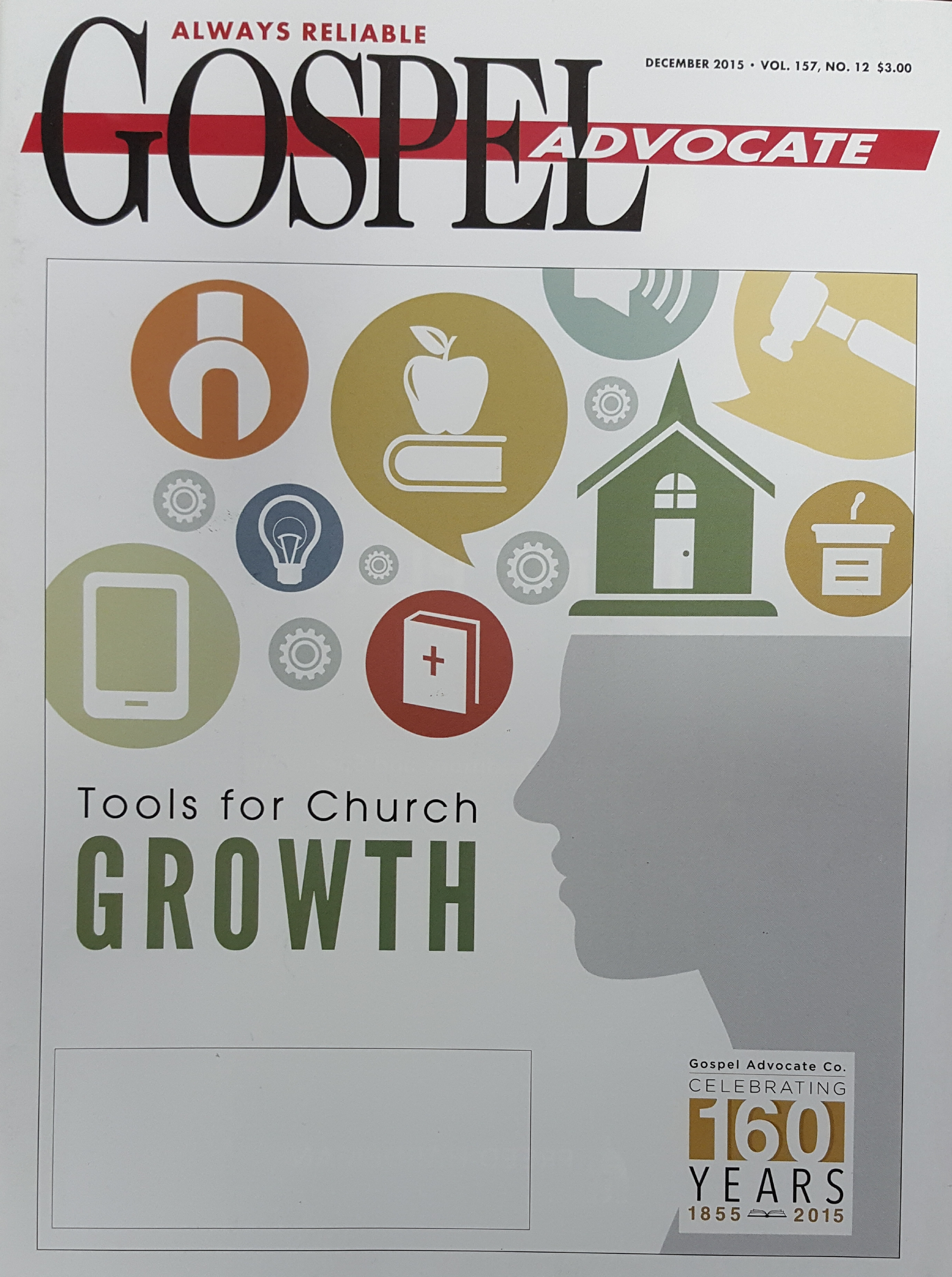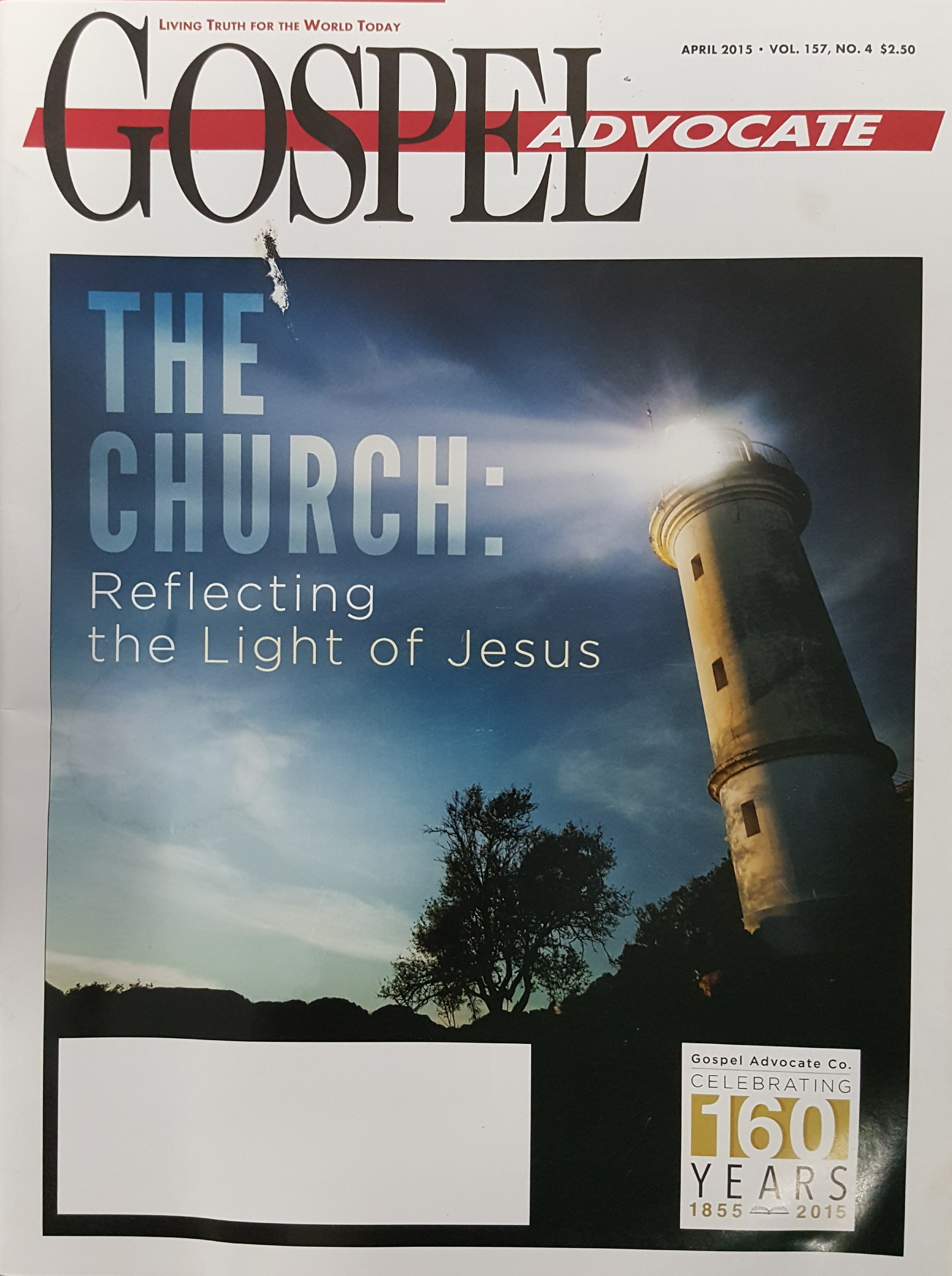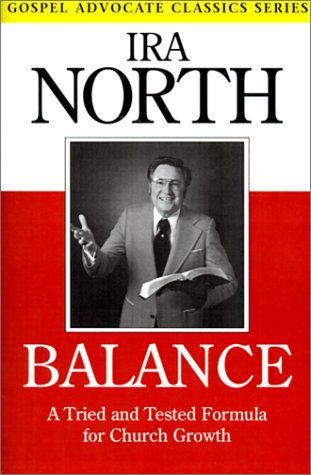Reprinted with permission from the June 2018 issue of Gospel Advocate Magazine. Slightly revised edition.
I am not a fan of church politics, but I know they exist. Sometimes it reminds me of walking through the streets when I was a kid. You always had to have enough “friends” with you; you had to make sure you were stronger than the “other guy” and never get caught walking alone, especially in an alleyway. It saddens me to admit that “brotherhood alleyways” do exist. It appears in the form of the public shaming of preachers or schools; it appears in certain back channels where preachers or churches are undermined every step of the way due to a difference of opinions. In a word, brethren, we get consumed with the actions of others, and we seek to control them. We can’t seem to mind our own business and be about our Father’s business to love our community with the gospel.
It seems appropriate to begin this discussion with a brief look at the conjoined issue of ego. Jesus always found a way to check the egos of His disciples when they interfered with the priorities of the kingdom of God. Three examples from Mark 9–10 are helpful to point this out. In Mark 9:33–37, the Lord had to refocus the whispers and debate among the Twelve regarding who was “great” in the kingdom of God. Greatness is measured by service, not by wielding power (cf. Luke 22:24–28). In Mark 9:38–41, Jesus corrected the disciples’ sense of managerial entitlement when they failed to stop a “nameless” disciple’s ministry. What matters is Jesus’ authority, not that of the disciples.
A little later, in Mark 10:13–16, the disciples impose their opinion on when Jesus was ready to provide ministry. Jesus undoes their harm by demonstrating that the kingdom of God is to be at the disposal of the vulnerable. I would argue that the actions of the disciples probably emerged from a good place, but these moments should remind us that personal ego often gets in our way of manifesting the kingdom of God. I truly believe the church is the place where our egos are supposed to die (Rom 6:1-10), but sadly they often resurrect.
We need to hear afresh the challenge from three letters: Jude, 1 Peter, and 3 John. At the heart of our church politics problems is that we have, at times, misapplied what it means to “contend for the faith” (Jude 3), become meddlers (1 Pet 4:15), and have failed to curb our egos (3 John 9).
Contending for the Faith
Many an article, sermon, blog, and petition have been published under the premise to “contend for the faith” (Jude 3). This is a very honorable goal. But at times the methods we use “to contend” lack Christian substance. The verb “to contend” (epagōnízomai) may be taken to mean, “to contend about a thing, as a combatant”[1] and give some legitimacy to a “war-time” church culture; but the metaphor should be taken in its natural direction. It may refer to “the intense effort” of an athlete to overcome the challenges of a sporting contest.[2] In this case, “to contend” is about self-discipline in the face of exertion, continuing the struggle for the sake of the faith.
Jude is the voice of reason the church needs to hear today. A careful reading of Jude does not support a “Cry ‘Havoc!,’ and let slip the [spiritual] dogs of war” agenda to demoralize and humiliate our brothers when we disagree theologically. In fact, Jesus warned that such tactics would endanger us with the fire of Gehenna (Matt 5:22). Instead, Jude writes that a proper response to the perversion of the gospel and subversion of Christ’s authority (v. 4) is to stay faithful to the content of the faith (v. 3), to trust in God’s Word, to trust the Lord will judge false teachers (vv. 5–9, 14–16), to trust that such people will self-destruct (vv. 10–13) and to maintain a Spirit-centered culture of grace, mercy, love, and redemption within the church (vv. 17–23)—all while affirming a distinction exists between the faithful and the ungodly false teachers and their corruption of the gospel itself (v. 12).
Jude does not shy away from revealing the errors of false teachers and the dangerous consequences that flow from their influence. The effort Jude speaks of is not to be spent on attacking the defectors, but instead, the exertion must be spent within our own souls, within our own congregations. We must resist the temptation to enable an ungodly inhospitable war-time church culture. With precision, Jude makes this little letter a rich description of the inhospitable environment the false teachers created in the church by their influence (vv. 12-13): they hinder love and community, they consume what others need, they withhold what is needed for life, and create a disappointing chaotic and unreliable spiritual incubator for the people of God. That is not what Jesus has called us to be.
Jude does not authorize intrusive efforts to “defend the faith.” Some among us have thought for quite some time that if they publicize an error long enough; generate enough brotherhood support; vilify the names of brethren or institutions; act like church “newscasters,” showing us the cold fronts of error among us; guide us through “connect the dots fellowship”; or act like church “J. Edgar Hoovers,” then we have contended for the faith. We have been so wrong. In truth, Jude’s brief message is bent on moving Christians to “exert effort” in embracing God’s wisdom, God’s sovereignty, and the Christian call to continue to be a fellowship of grace and mercy, love and forgiveness while affirming a distinction between ungodly false teachers and their corruption of the gospel itself (Jude 12). Those are quite different responses.
Jude concludes his letter by saying,
“But you, beloved, building yourselves up in your most holy faith and praying in the Holy Spirit, keep yourselves in the love of God, waiting for the mercy of our Lord Jesus Christ that leads to eternal life. And have mercy on those who doubt; save others by snatching them out of the fire; to others show mercy with fear, hating even the garment stained by the flesh” (vv. 20–23).
This is the work of contending. Today, we need to learn that many times the best way to deal with false teaching is to focus on the work of our local congregation, be patient with our brethren, and be gracious to those struggling rather than entering into a shouting match, in other words, staying busy with our own work and minding our own business.
Meddlers and Bullies
Meddlers. In 1 Peter, the apostle Peter addresses a number of Christian churches undergoing a forceful front of localized persecution of “shaming” in the northern provinces of Asia Minor (1:1; 2:12; 3:13; 4:4). Peter reminds them to respond to such shame-based threats by providing a kind and respectful verbal response, explaining their hope in Jesus as Lord (3:14–15). He further exhorts them to refrain from “clashes” with the community due to punishable crimes (murder, thievery, evil-doing, meddling; 4:15). Indeed, the only clash that will glorify God is when Christians are unjustly persecution for the name of Christ (4:16).
We need to give thought to Peter’s word, “meddler” (ESV, NIV). It is listed among the four offenses Christians must avoid. English translations show the difficulty of rendering this compound word (allotri + episkopos), the New Revised Standard Version has “mischief-maker”; the New King James Version, “busy-body”; and New American Standard Bible, “troublesome-meddler.” Quite possibly, Peter coined this word because it is found nowhere in Greek literature before him. At the core, the “meddler” is someone who apparently takes or seizes control of the affairs of others. Peter condemns Christians controlling others “tactlessly and without social graces.”[3] Too many times Christians think their duty is to control the choices of our neighbors. I suspect it is because we seek the right outcome of godliness. This, however, becomes a “no win” scenario. The local church is a fertile field for this temptation. Many cultish tactics have been used in the name of “discipling” our brethren. Pulpits are used not only to “persuade men” but to “meddle” in the affairs of our members. Elders cross the line separating overseeing and control. But those with more daring egos can emerge to be “the overseer” of brotherhood affairs with ungodly force and shame to establish control. Peter reminds us to “mind our own business.”
Bullies. In 3 John, the aged apostle John writes to Gaius an embattled faithful Christian leader, who is part of the collateral damage of a church bully named Diotrephes. The church setting was desperate, requiring his own personal touch (vv. 10, 13–14). The issue? False teaching? Nope. The tension was about control over mission work (vv. 5–8). Traveling preachers were part of early church culture. Over a period of time, John had commended several to this church for support, anticipating their needs would be supplied to reach the next leg of their journey. Instead, he found a polarizing church culture had matured, manifesting in Diotrephes and Gaius.
Maybe Diotrephes began this journey with a proper concern for church autonomy in matters of missions or with a desire to serve the church. The only motive explicitly given in this letter is that he “likes to put himself first” and his rejection of apostolic authority (3 John 9). The outcome, however, was wickedness, suppression, and subterfuge. He created an inhospitable and volatile church culture where suspicion reigns and alternative opinions are silenced and ousted (v. 10). It was all a bit like an Orwellian 1984 dystopia. Diotrephes was the “thought police.” He thrust his voice into areas beyond his authority, and in order to do so, he imposed his opinion by force and manipulation.
There is no question that ego became a problem, and behind that lay sin. Diotrephes became a mission-killing church bully because he chose self over the kingdom of God. He chose “preeminence” (KJV, ASV), “to be first” (NET), “to be in charge” (ISV), “to be number one” (Plain English NT), “to have first place” (FHV), “to be first in everything” (Phillips). Third John shows us the damage rendered by elders and preachers who dominate others like an “intolerant general” when something is not done their way. A church bully by any other name would still reek of wickedness. Brethren, we need to humble our pride and “mind our own business.”
Conclusion
I’ll be honest. Sometimes I feel like an outsider, even after being a part of the church for now over twenty years. But I have seen church bulletins as subtle tools for shaming congregational members and even preachers from outside of the congregation. I’ve known preacher friends receiving a copy of a brotherhood “journal” with a post-it note attached as a “friendly” reminder of how “misguided” they are for their views. Brotherhood magazines have been leveraged to do excessive numbers of exposés about this school or that preacher rather than teaching what the Bible says. For what purpose? To establish unity? None of this brings unity; instead, such actions seem designed to permanently polarize. Church, we can, and must, do better (John 13:35). Part of the solution is to be about our “local work” and to “mind our own business” (Romans 14:4).
Endnotes
- W. E. Vine, Merrill F. Unger, and William White, Jr., Vine’s Complete Expository Dictionary of Old and Testament Words (Nashville: Nelson, 1985), 2:125.
- E. Stauffer, s. v. “agōn,” Theological Dictionary of the New Testament (Grand Rapids: Eerdmans, 1964), 1:134-40. [In addition: BDAG 356, “The primary semantic component in the use of this verb in Jd 3 is the effort expended by the subject in a noble cause.” It gives “expression” to the Greco-Roman “ideal of dedication.”]
- Thomas R. Schreiner, 1, 2 Peter, Jude (Nashville: B&H, 2003), 224-25.


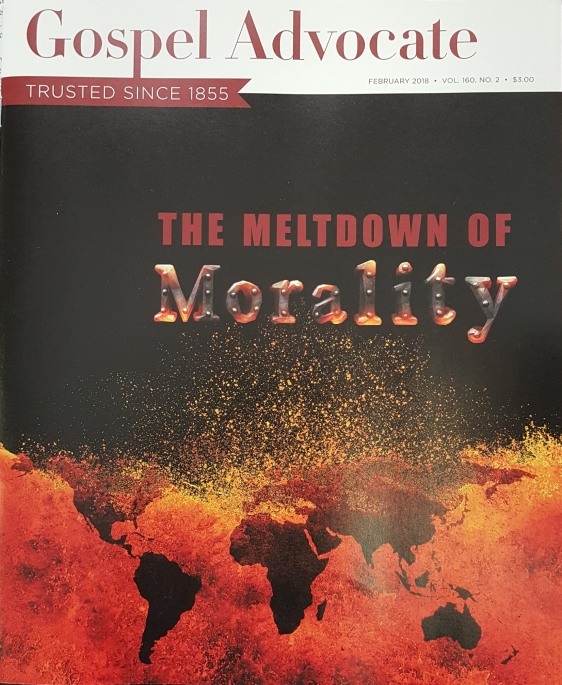

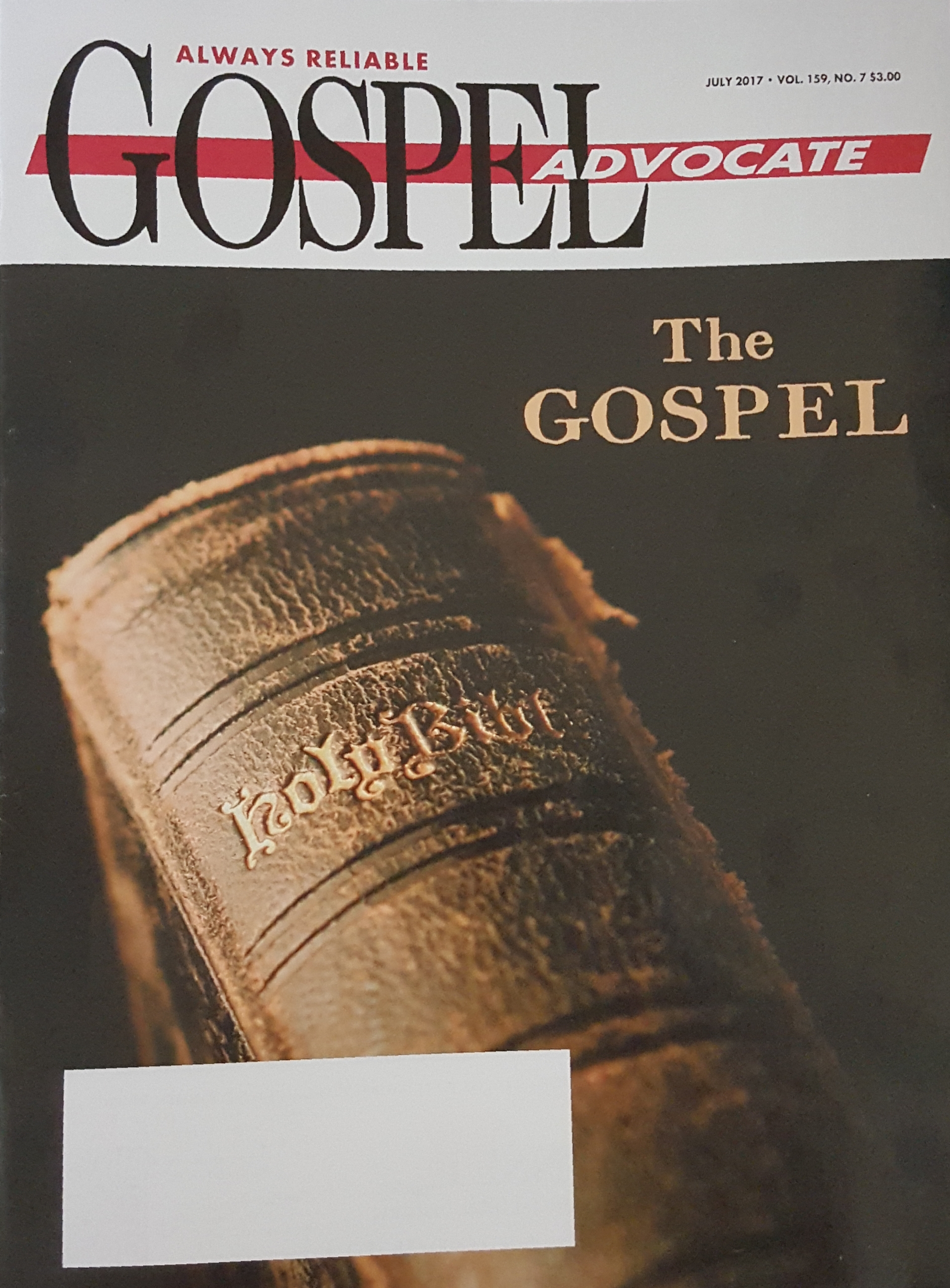 The Gospel of Luke, like Matthew, Mark, and John, provides a narrative of Jesus that dramatically emphasizes the story and significance of His life and ministry, His rejection and crucifixion, and His resurrection and exaltation. Yet, despite bearing strong similarities with the other inspired accounts, Luke’s approach expands our understanding of Jesus and the working out of God’s plan to bring salvation into the Jewish and Gentile world.
The Gospel of Luke, like Matthew, Mark, and John, provides a narrative of Jesus that dramatically emphasizes the story and significance of His life and ministry, His rejection and crucifixion, and His resurrection and exaltation. Yet, despite bearing strong similarities with the other inspired accounts, Luke’s approach expands our understanding of Jesus and the working out of God’s plan to bring salvation into the Jewish and Gentile world.

